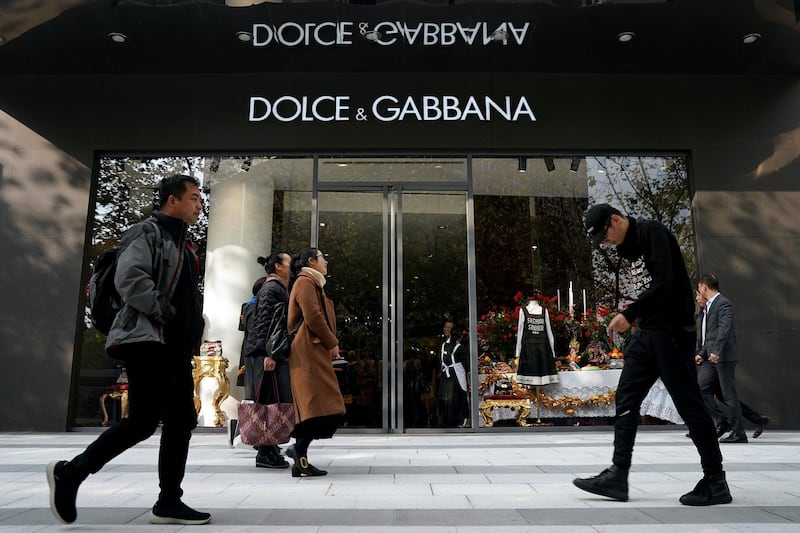It is difficult to imagine how anyone at such an international brand as Dolce and Gabbana could have imagined that portraying the Chinese as unworldly, struggling to eat Italian food with chopsticks in an advertisement for a fashion show in Shanghai, might be considered acceptable.
But aside from the blatant racism, perhaps the most extraordinary thing about the heavyhanded misappropriation of Chinese culture by the luxury Italian fashion house is that it felt the need to unsubtly attempt to pander to local tastes.
The appeal of such brands lies in their globalised nature and their Chinese customers are likely to be well-travelled and well-versed in other nations and cultures.
Indeed, in 2016, nearly four million Chinese tourists visited Italy and were the biggest overseas buyers when it came to luxury items in that country.
In a globalised world, consumers do not always flock to the stores of international brands in the hope of finding a product that reflects their own culture. It is one of the very perks of living in such a world that goods and cultures from around the globe find their way to us, wherever we might be.
Dolce and Gabbana isn’t the first brand to get it so horribly wrong in an attempt to woo a diverse international customer base.
In 2015, snack-maker Pringles launched a UK-wide Ramadan campaign featuring bacon-flavoured crisps.
And in 2013, sportswear firm Nike had to scrap a range of women’s clothing inspired by traditional Pacific island tattoos after Samoans pointed out the patterns were sacred and worn exclusively by men.
In today’s world, the mall is often the village square of our globalised era, a place where people from every culture under the sun can congregate in commonality.
Nowhere better typifies this than the UAE. Taking a stroll around Dubai Mall, one of the largest on the planet, is to window-shop the world in the company of citizens from 200 other nations.
Globalisation is one of the wonders of our age, a magical bridge that allows us to experience an astonishing and inspirational variety of diverse cultures, while retaining a proud grip on our own.
The furore over Dolce and Gabbana’s badly misjudged attempt to ingratiate itself with Chinese consumers should remind us all of one simple, respectful rule: when you cross that bridge, just be yourself.





